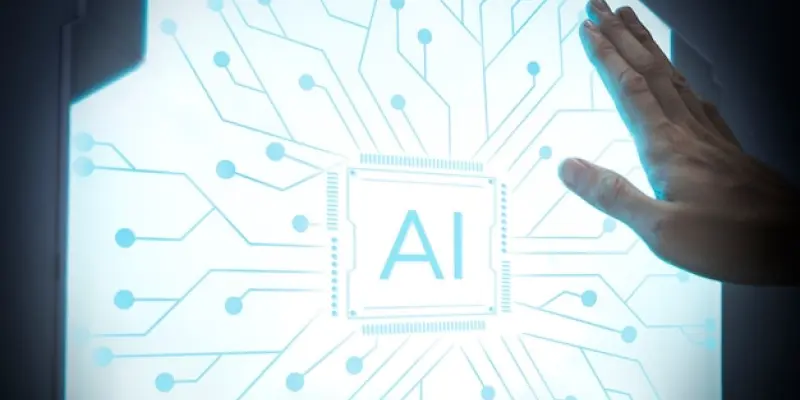The rapid integration of artificial intelligence (AI) into nearly every aspect of daily life has been both revolutionary and transformative. From enhancing consumer experiences through personalized internet searches and advanced customer service to augmenting decision-making in complex fields like healthcare and climate change, AI’s influence is undeniable. It has reshaped the global landscape by influencing economies and social systems, extending beyond just individual users to impact broader societal structures. The AI market has boomed, with projections estimating its value at $244 billion. Furthermore, a significant percentage of global organizations and populations have incorporated AI into their daily operations, indicating nearly universal adoption.
AI in Consumer and Professional Spheres
Widespread AI Adoption Across Industries
AI’s penetration across a diverse array of sectors underscores its practical utility and wide-ranging impact. Currently, approximately 78% of organizations have embedded AI into their processes, realizing increased efficiency and innovation. This integration is not limited to corporate spaces; it reaches into everyday life, where the global population extensively uses AI-driven tools, transforming how people interact with technology. In retail, for instance, AI powers data analytics that refines everything from supply chain logistics to personalized consumer marketing. Customer service has also seen major improvements through AI-powered chatbots that provide quicker and often more effective responses to consumer inquiries.
Transformative Impact on Healthcare and Education
In healthcare, AI technologies are pushing boundaries by revolutionizing diagnostics, patient monitoring, and treatment planning. A staggering 90% of hospitals now employ AI technologies to enhance operational accuracy and efficiency, reducing human error and improving patient outcomes. Education is witnessing a similar transformation, with 92% of students utilizing generative AI tools to support learning processes. These tools facilitate personalized learning experiences, enabling educators to tailor resources that cater to individual student needs, ultimately fostering an environment that stimulates innovation and critical thinking.
Challenges of AI in Society
Employment and Economic Effects
While AI offers extensive benefits, it also poses significant challenges, particularly in employment. Predictions indicate a potential displacement of 50% of white-collar jobs due to automation, with women being disproportionately affected. They are statistically three times more likely to experience job displacement than their male counterparts. This trend has led to a notable reduction in job vacancy rates, especially in roles highly exposed to automation. Moreover, as AI systems continue to advance, the need for upskilled professionals who can navigate these technologies has never been more urgent, pushing educational and professional institutions to rethink training and development paradigms.
Societal and Environmental Concerns
Beyond the economic realm, AI development raises societal and environmental concerns that require urgent attention. Harmful AI incidents have risen sharply, leading to increased discussions on trust and ethical use, compelling policymakers to implement regulations. Currently, 60% of the global population resides in regions where AI regulations are enforced, underscoring the need for more comprehensive oversight. Environmentally, AI’s energy consumption is noteworthy; it is anticipated to consume 23 gigawatts of electricity soon, contributing significantly to greenhouse gas emissions. Therefore, balancing technological advancements with sustainable practices is critical to mitigate potential ecological impacts.
Future Considerations for AI Integration
Balancing Innovation and Regulation
The future of AI hinges on achieving a delicate balance between innovation and regulation. As technology continues to advance, regulatory frameworks must evolve in tandem to ensure that AI’s benefits are maximized while its risks are minimized. Effective legislation should provide a robust foundation for ethical AI development, promoting transparency and accountability among developers and users. Encouraging collaboration between governments, industry stakeholders, and the public can lead to more comprehensive solutions that address emerging challenges without stifling innovation. Policymakers and industry leaders must prioritize dialogues that foster mutual understanding and facilitate the development of sustainable AI ecosystems.
Ethical and Inclusive AI Development
The swift rise of artificial intelligence (AI) in almost every facet of everyday life has been nothing short of revolutionary and transformative. AI has enhanced consumer experiences by personalizing internet searches and improving customer service, while also aiding decision-making in intricate domains such as healthcare and climate change. Its impact extends far beyond the individual to reshape economies and social systems worldwide, transforming societal structures on a global scale. The booming AI market is projected to hit a valuation of $244 billion, underscoring its economic significance. Additionally, a substantial portion of global organizations and populations have embraced AI for their regular operations, reflecting its near-universal adoption. This widespread integration highlights not only AI’s growing importance but also its potential to continue evolving, influencing, and driving future innovations and advancements across various sectors, with the promise of a more interconnected and efficient global society.

